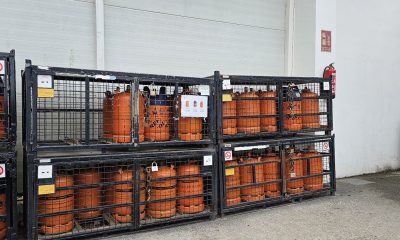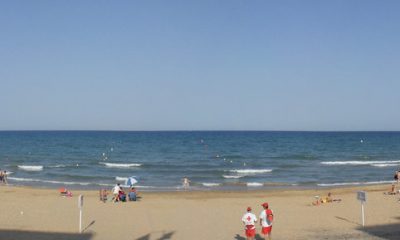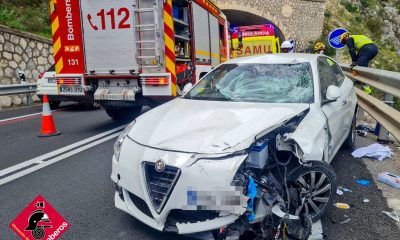Costa Blanca
First aid training to local police is signed by the Dénia Council and Benidorm Hospital Clinic
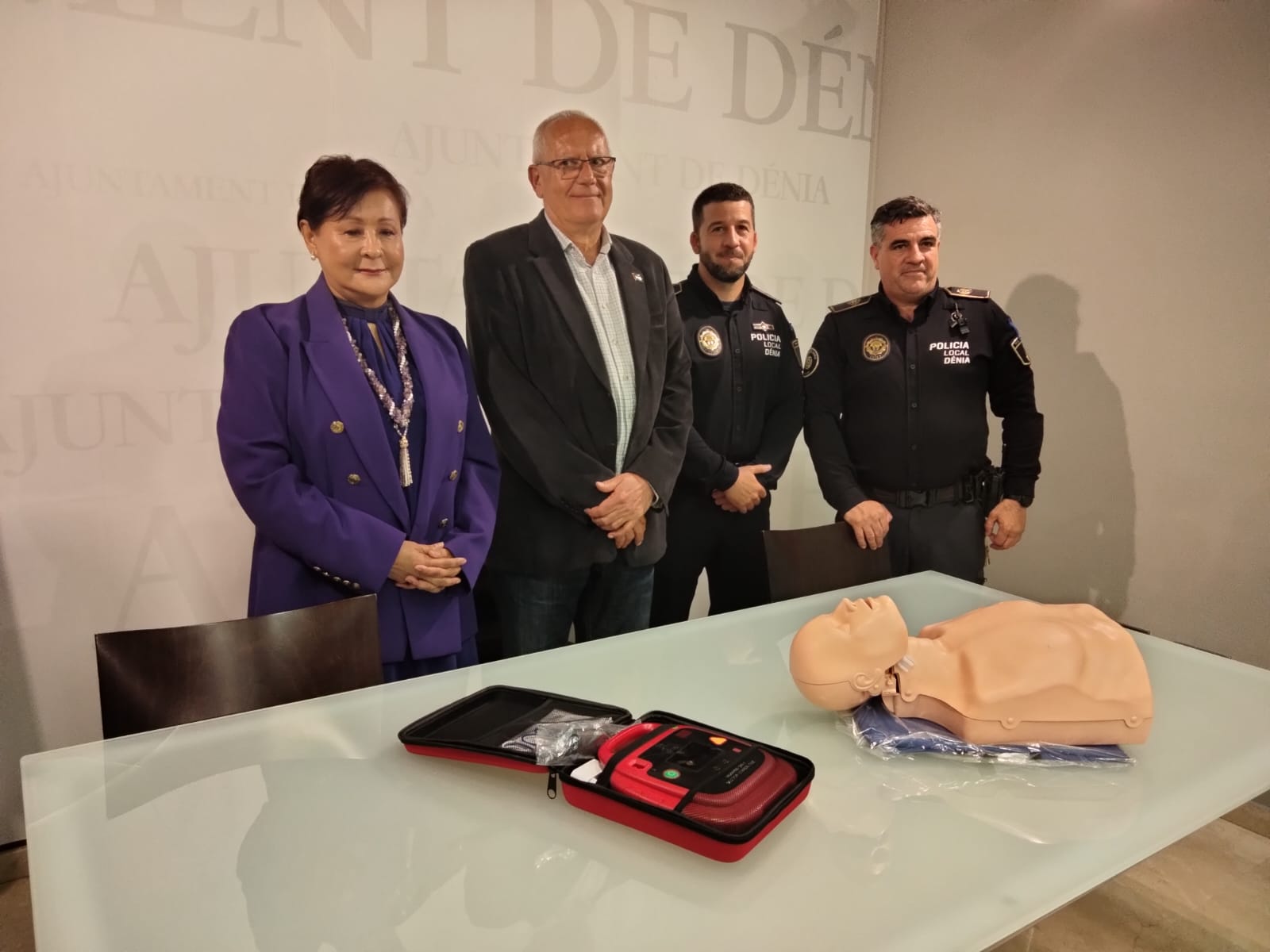
Vicent Grimalt, the mayor of Dénia, and Ana Vasbinder, the director of the Benidorm Clinical Hospital, signed a cooperation agreement this Tuesday to plan training exercises for the Local Police in the areas of accident or health-related assistance, prevention, and first aid.
The technical tools required for the training, including a mock defibrillator and a dummy to simulate resuscitation techniques, were also supplied by the Benidorm Clinic Hospital, which has operated in Dénia for three years.
The first term of this arrangement will be four years.
The materials “will be used immediately in the road safety and first aid classes” that the force conducts in the city’s schools, according to Jovi Estruch, Chief Superintendent of the Dénia Local Police. Additionally, the first course that will be offered as a result of this partnership with the HCB is already planned for June.
This partnership with Dénia City Council and the Local Police “is an obligation, but also an honour, in response to the warm welcome we have received from the public,” said Ana Vasbinder, who is also the director of Institutional Relations at Benidorm Clinical Hospital.
“One of our goals as a company is to be part of the social network in the communities where we work, so being able to help police officers improve their care of people is a commitment for us ,” Vasbinder said.
The health centre’s director further underlined that “their actions can often save lives” because the local police are frequently the first emergency services to arrive at an accident scene.
The Benidorm Clinical Hospital was recognised by the mayor for its participation “in this and many other municipal initiatives related to health and sport.”
Discover more from Costa Blanca Daily
Subscribe to get the latest posts sent to your email.
Costa Blanca
“Drug Supermarket” in Denia closed by Police
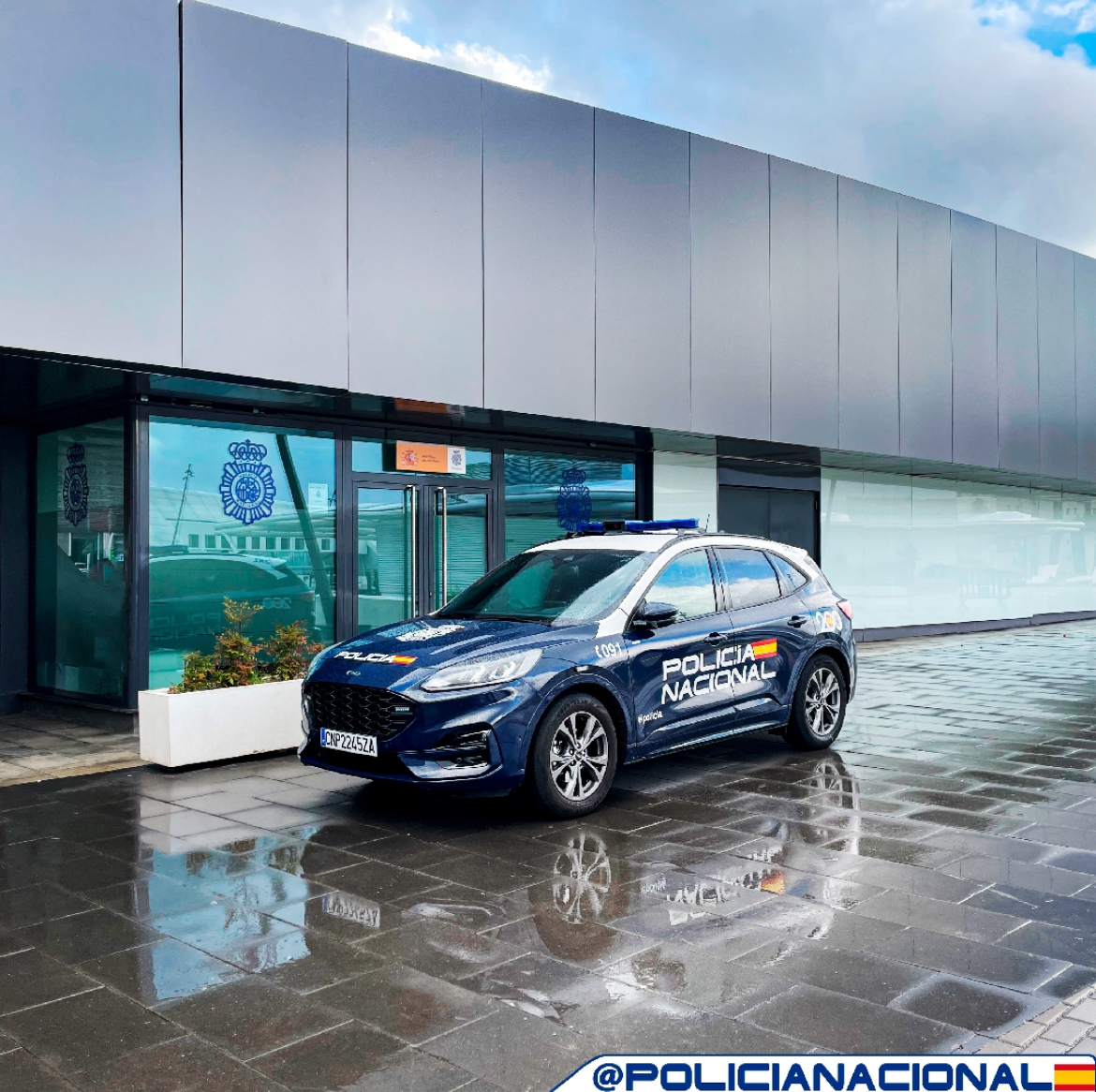
Four individuals have been apprehended by National Police officers in Dénia (Alicante) for the “indiscriminate” sale of drugs under the guise of a purportedly legitimate association. Over four kilogrammes of marijuana, cannabis, cocaine, and distribution materials were confiscated during the search.
The investigation began following the identification of a potential clandestine drug trafficking organisation. According to a statement from the police headquarters, the establishment was experiencing a consistent flow of individuals at various periods of the day, despite the absence of any sign or apparent commercial activity.
The officers initiated procedures to confirm the status of the establishment in conjunction with the Judicial Police and Citizen Security Units. They verified that the establishment did not have any activity records registered at the regional level during the inspections.
They also confirmed that the establishment’s basic supplies were registered to someone possibly linked to the criminal community. The association’s manager also had a criminal record.
The police conducted a “discreet” operation that verified the regular sale of narcotics at the establishment. Lines formed outside the establishment to purchase drugs on certain days, “as if it were a genuine drug supermarket.”
“Once we obtained the necessary judicial authorisations, we conducted a search. The search revealed numerous containers labelled with marijuana, zip-lock sacks containing the same substance, and pre-made homemade cigarettes. Cocaine was consumed in some areas, and some narcotics were hidden in appliances and furniture,” said the police.
The authorities confiscated over four kilogrammes of marijuana, a lesser quantity of hashish, and a small quantity of cocaine. The search resulted in the arrest of two males, aged 42 and 22, respectively.
Despite a court order sealing off the premises, the investigation continued in an effort to identify the remaining suspects. Shortly thereafter, Denia police apprehended two more males, ages 22 and 23.
An alleged offence against public health has resulted in the arrest of the four suspects. Two of the apprehended individuals had prior convictions for comparable offences.
The Denia Court of First Instance has been informed of all the proceedings.
Discover more from Costa Blanca Daily
Subscribe to get the latest posts sent to your email.
Costa Blanca
Goodbye forever to the traditional butane gas bottle
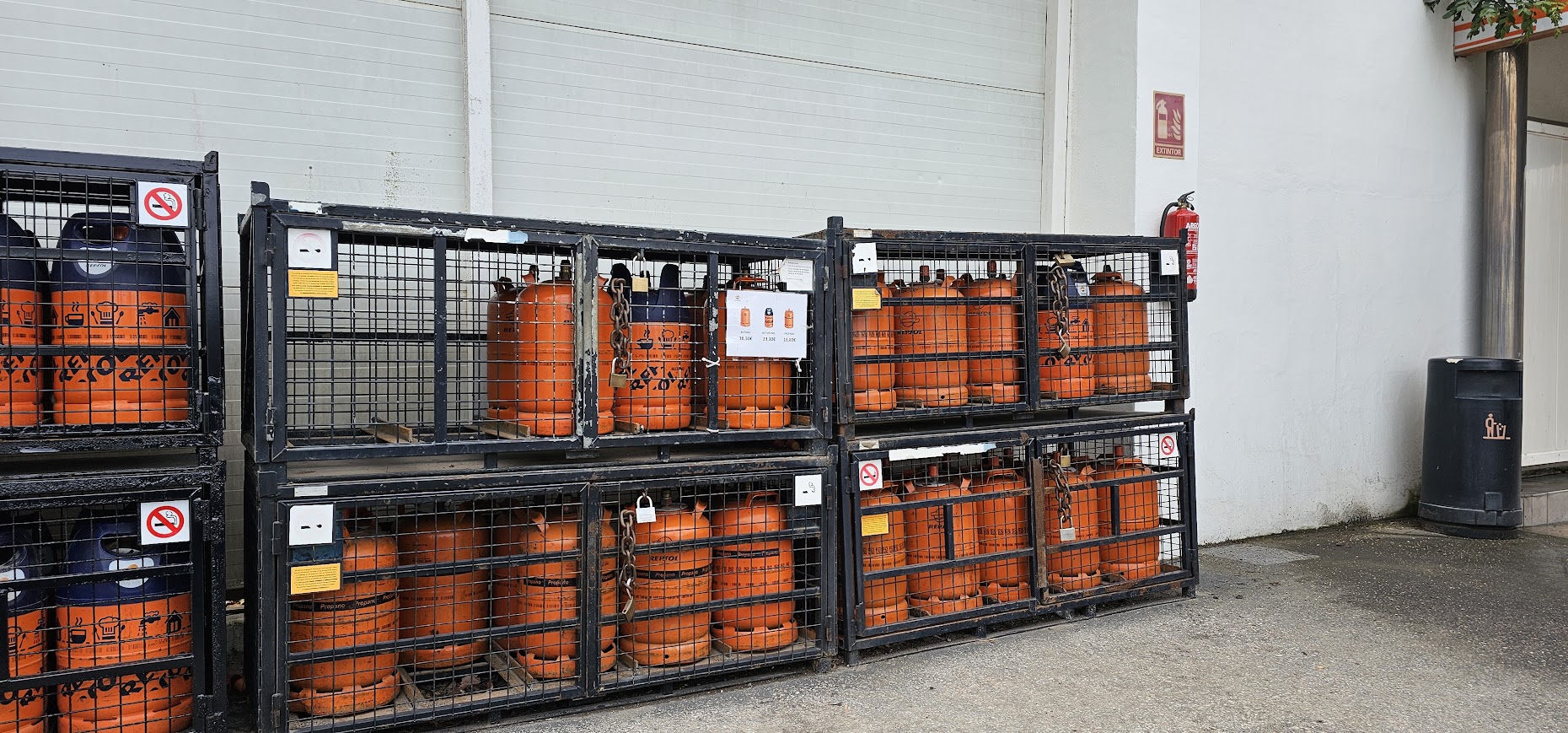
The orange butane gas cylinder has been a symbol of Spanish residences for decades. Several generations have collectively imagined its distinctive colour and shape, a fixture in kitchens, bathrooms, and terraces. Nevertheless, the manner in which we consume energy is subject to change as well. This classic appears to be on the brink of extinction in the face of technological advancements and the movement towards a more sustainable energy transition.
Repsol and Cepsa, two of the largest companies in the world, have made strides in 2025 by introducing more efficient, lightweight, and modern alternatives. These new cylinders incorporate technological advancements to improve product control and traceability. Furthermore, the expansion of alternative energy sources, including natural gas, induction charging, and heat pumps, is progressively relegating butane to a secondary position.
The new butane cylinder that is here to stay
Repsol has spearheaded the market transformation with an intriguing proposal: a butane cylinder that is lighter than the traditional cylinder, with a capacity of 12 kg and a total weight of only 17 kg, as opposed to the traditional cylinder’s 25 kg. This new version is more convenient to transport and use on a daily basis due to its use of lighter materials and high-strength steel.
Additionally, users can monitor the container’s status and consumption in greater detail thanks to its NFC chip. The retail price of this cylinder varies between €20 and €24, depending upon the point of sale, which can be found at petrol stations or online.
Cepsa has not been neglected. The company has selected a line of cylinders that are lighter and more manageable. The 12.5 kg model, which is similar in capacity to the traditional model, is sold on the open market at prices varying from €17.67 to €20.94 and has a lower total weight (18 kg).
This alternative is particularly appealing to home consumers who continue to depend on butane for cooking or heating water, as it provides a satisfactory balance of functionality and user-friendliness. Notable products designed for outdoor living and leisure are the Campingaz 901 and 902 petrol cylinders.
The conventional butane gas cylinder, despite its continued presence in millions of households, appears to have commenced its journey towards its definitive extinction. Companies such as Repsol and Cepsa’s dedication to containers that are lighter, more manageable, and more sustainable is indicative of not only a commercial necessity but also an adaptation to the evolving era. Our society is transitioning to a more environmentally benign energy model that emphasises rational and efficient resource utilisation.
Additionally, state regulation is exerting a significant influence. The government establishes prices for certain cylinders, including the regulated 12.5 kg cylinder (currently priced at €17.67), which provides some level of consumer protection. Nevertheless, the emergence of new options that make a significant difference is being driven by competition and innovation in the free market.
However, the development of butane does not exclusively determine the future. Propane gas stands out as a powerful alternative, particularly in cold regions where butane gasification poses challenges. Propane is available in regulated 11 kg containers (priced at €14.65) and larger 35 kg containers, which are intended for high-volume industrial or domestic consumption, with prices commencing at €70. These containers are designed to provide a more effective response to low temperatures.
Although we cannot definitively declare the renowned orange butane gas cylinder extinct, it is gradually disappearing from the Spanish energy landscape. More sustainable and efficient foundations, tailored to a more comfortable lifestyle, establish the future.
Alternative sources of energy
In contrast to conventional butane gas cylinders, new energy alternatives exhibit distinctions that surpass mere weight or price. The evolution of energy consumption in Spanish homes is indicative of a more profound transformation: a change in consumer mindsets, routines, and our understanding of sustainability and efficiency.
Although butane remains a pertinent energy source in numerous rural areas and second residences, it is losing ground to more contemporary alternatives. Electric induction cooktops have become the norm for cooking in newly constructed residences, particularly in urban areas. They are safe, easy to clean, and faster than traditional gas, making them attractive for both families and people who live alone or have little time to cook.
Another development that is acquiring momentum is the heat pump. This system, capable of providing heating in winter and cooling in summer, consumes less energy than traditional methods and significantly reduces CO₂ emissions. Furthermore, some models can also heat domestic water, making them a comprehensive solution for the home. In this context, the classic orange gas cylinder is starting to seem like a thing of the past.
Discover more from Costa Blanca Daily
Subscribe to get the latest posts sent to your email.
Costa Blanca
A swimmer adrift in an inflatable rescued off Guardamar beach

An inflatable boat, with a 43 year old swimmer onboard, that had drifted off the shore of Guardamar del Segura (Alicante) was rescued by a Red Cross boat on Saturday, April 19th.
The individual was rescued by the Maritime Rescue crew of the Red Cross after drifting away from the coast and being unable to swim back, according to the Red Cross.
The swimmer was discovered to be in good health and was taken to the port after a call to 112 and the Alicante town’s lifeguard team.
The Red Cross has reminded all individuals that the use of inflatables at sea can be hazardous, and therefore, it is imperative to implement stringent safety measures to mitigate the risks.
Discover more from Costa Blanca Daily
Subscribe to get the latest posts sent to your email.
-
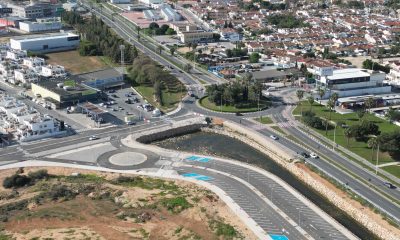
 Costa Blanca1 day ago
Costa Blanca1 day agoTorrevieja fails to comply with its commitment to open new road at La Hoya for Easter
-
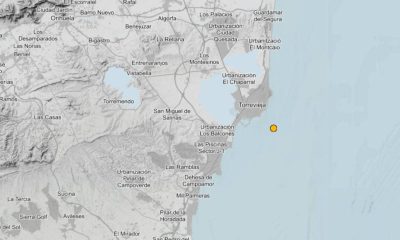
 Costa Blanca6 days ago
Costa Blanca6 days agoTorrevieja records a 2.8 magnitude earthquake
-

 Costa Blanca1 week ago
Costa Blanca1 week agoSpanish family killed in helicopter crash in New York
-

 Costa Blanca2 weeks ago
Costa Blanca2 weeks agoBeware if you receive an orange envelope in your postbox
-
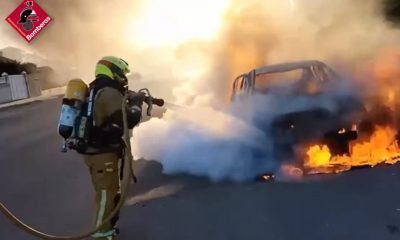
 Costa Blanca2 weeks ago
Costa Blanca2 weeks agoA car fire on the Orihuela Costa is promptly extinguished by firefighters
-
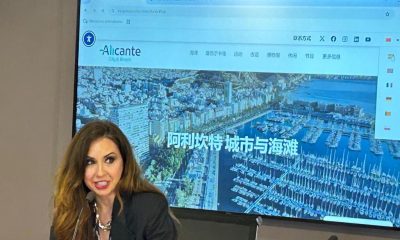
 Costa Blanca6 days ago
Costa Blanca6 days agoThe Alicante Tourist Board website now available in seven languages
-

 Costa Blanca1 week ago
Costa Blanca1 week agoElche residents rescued after a fire caused by an electric scooter
-
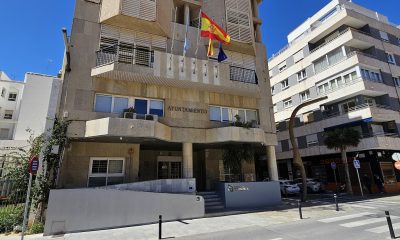
 News2 weeks ago
News2 weeks agoFormer Torrevieja PP councillor to go on trial for misconduct in public office



